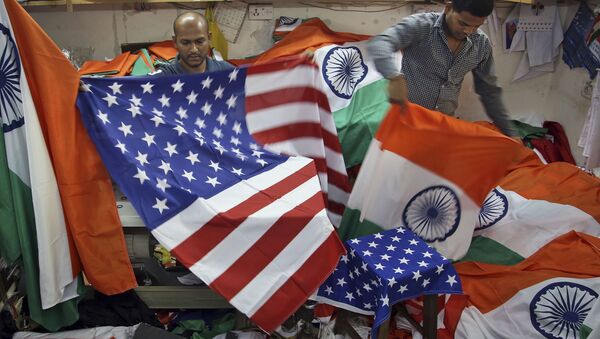The toned-down and somewhat vague Indo-Pacific strategy of the US and its preoccupation with domestic uncertainties of late is significantly challenging India to show more dexterity in its strategic and economic engagement in the region, according to Ambassador Gurjit Singh, former Indian envoy to ASEAN, Germany and Indonesia.
The US concept of a free and open Indo-Pacific has not translated into a clear policy approach over two years after it was envisioned by President Donald Trump, he says.
Singh notes that Washington stood by and watched China expand control in areas of strategic importance, especially in the South China Sea, where it has built and militarised artificial islands.
He says the biggest stumbling block for India is China, the recent informal "Çhennai Connect" summit between Prime Minister Modi and President Xi Jinping notwithstanding.
“We want China’s help to correct the existing bilateral trade imbalance, but Beijing has been unwilling. ASEAN countries see India as a balancer (to China). They don’t want India out of Indo-Pacific groupings such as the RCEP and are keen on working on an alternate arrangement,” the former Indian envoy to ASEAN adds.
Stating that all countries want India in but are currently unable to persuade China, Australia, and New Zealand, the former Indian diplomat says: “China, Australia and New Zealand are only interested in having unrestricted access to the Indian market without addressing New Delhi’s concerns. All three are unwilling to open their markets. We are getting nothing in return.”
India’s recent decision to opt out of the 15-nation RCEP (Regional Comprehensive Economic Partnership) this month did not come as a surprise, as it highlighted the need for New Delhi to adopt a more modern and competitive approach on regional and global economic engagement, Singh opined.
“We are apprehensive of competition; in fact, we are not as competitive as we should be. Strategically speaking, it is good for India to be a part of the RCEP, but strategy and policy have to be rooted in the strength of domestic policy. In this case, our domestic policies are currently not up to taking on the challenges on offer in the RCEP,” he says.
India has viewed FTAs as an important tool to enhance trade and investment, and has signed a number of trade agreements with various countries or groups. India remains one of the top countries in Asia with the maximum number of FTAs (42) either in operation or under negotiation, or proposed.
Pitching for India to grab opportunities and to keep the door open for future negotiation, Singh says that in the Indo-Pacific context the challenge before New Delhi in terms of its “Look East, Act East” initiative is more political and strategic, and less economic.
Observing that the US is taking less interest will allow countries like India, Japan and Australia to do more, the move targeted to give India more prominence and to ensure that sea lanes in the South China Sea remain open for all. “India needs to accept that challenge and take more concrete steps in the Indo-Pacific,” he noted.



